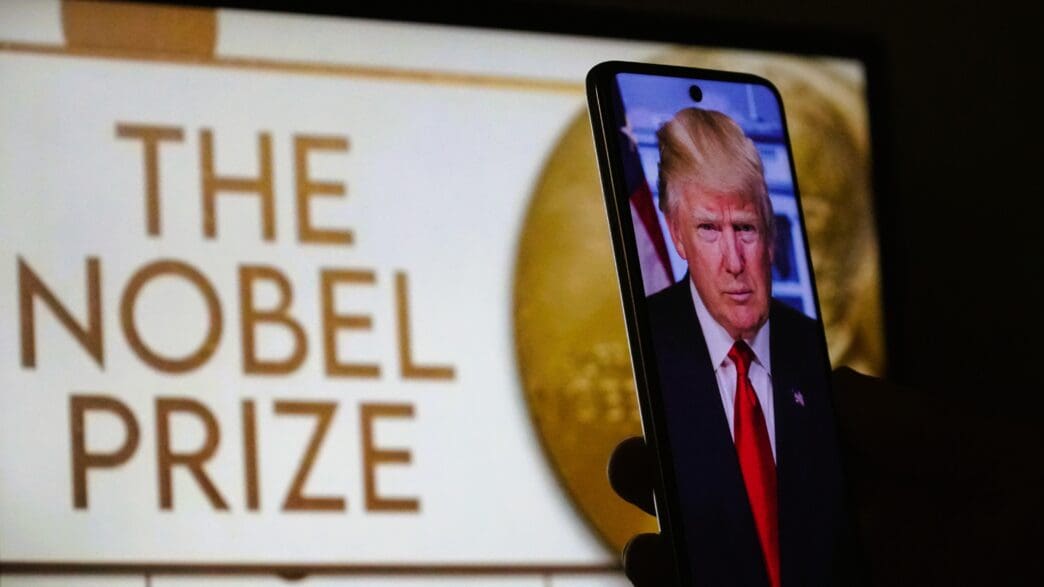Executive Summary
The Story So Far
Why This Matters
Who Thinks What?
President Donald Trump could potentially secure a Nobel Peace Prize in 2026 if his administration successfully brokers peace settlements in the ongoing conflicts in Ukraine and Gaza, according to an analysis published October 7, 2025, by Brett H. McGurk, a CNN global affairs analyst who has served in senior national security positions across multiple administrations. McGurk’s analysis suggests that frameworks are now in place for resolving both wars, which, if brought to fruition, would merit consideration by the Nobel committee.
The Path to Peace in Ukraine
In Ukraine, McGurk points to a potential deal emerging after months of diplomatic engagement with Russian, Ukrainian, and European leaders, alongside a significant Russian offensive that yielded no territorial gains but resulted in over 20,000 Russian casualties. The proposed settlement, as outlined by McGurk, includes a security guarantee from the United States and NATO allies to bolster Ukraine’s military and protect its sovereign territory against future invasions. It also envisions land swaps along the current line of contact in eastern Ukraine to establish secure borders and pave the way for long-term peace.
Achieving this settlement, McGurk argues, necessitates a sustained commitment of military supplies to Ukraine, including air defenses and longer-range missiles, coupled with increased sanctions and economic pressure on Moscow. President Trump appears to have endorsed an approach where US military equipment reaches Ukraine through purchases by NATO allies. European nations are also reportedly discussing using over $300 billion in frozen Russian assets as a loan to Ukraine, further increasing pressure on Russia, which has suffered over a million military casualties and faces a stressed economy.
Efforts to End the Gaza War
Regarding the Gaza conflict, President Trump inherited a three-phase ceasefire plan from the Biden administration, which unfortunately broke down after its initial phase in March. The subsequent period saw intense Israeli military operations, a deepening humanitarian crisis, and an Israeli blockade of Gaza’s borders. McGurk notes that prospects for a Nobel Prize seemed remote due to stalled talks and concerns over potential Israeli occupation or resettlement claims in Gaza.
However, McGurk highlights a shift following President Trump’s presentation of a 20-point plan to end the war. This plan requires Israel to renounce annexation or occupation and mandates Hamas to relinquish control over Gaza and release all hostages. The plan has garnered endorsement from Israel and support from several Arab and Muslim-majority states, including Saudi Arabia, Qatar, Egypt, Jordan, Turkey, Pakistan, and Indonesia. McGurk commended President Trump and his team, including Steve Witkoff and Jared Kushner, for their role in finalizing this program and building broad international support.
The plan establishes a consensus that Hamas cannot remain in control of Gaza post-conflict, necessitating a US-organized international effort to restore security and establish new governance structures. While Hamas has offered a qualified endorsement, with talks ongoing in Cairo for hostage and prisoner exchanges, McGurk anticipates potential delays from Hamas regarding disarmament and control. The plan, however, is designed to proceed in areas Hamas no longer controls, aiming to hasten the war’s end and establish a Gaza without Hamas. Israel’s acceptance of “a credible pathway to Palestinian self-determination and statehood” and its renunciation of reoccupation or resettlement of Gaza are also deemed essential for longer-term peace initiatives.
Nobel Prospects for 2026
While an immediate Nobel Peace Prize for President Trump in 2025 is highly unlikely, McGurk suggests that the 2026 award, marking the prize’s 125th anniversary, could be within reach. He argues that if President Trump and his team can successfully follow through on the established frameworks for ending both the Gaza and Ukraine wars, they would credibly lay claim to the prestigious award. McGurk concludes by stating that regardless of one’s political views, the successful resolution of these critical conflicts is a universally desirable outcome.








